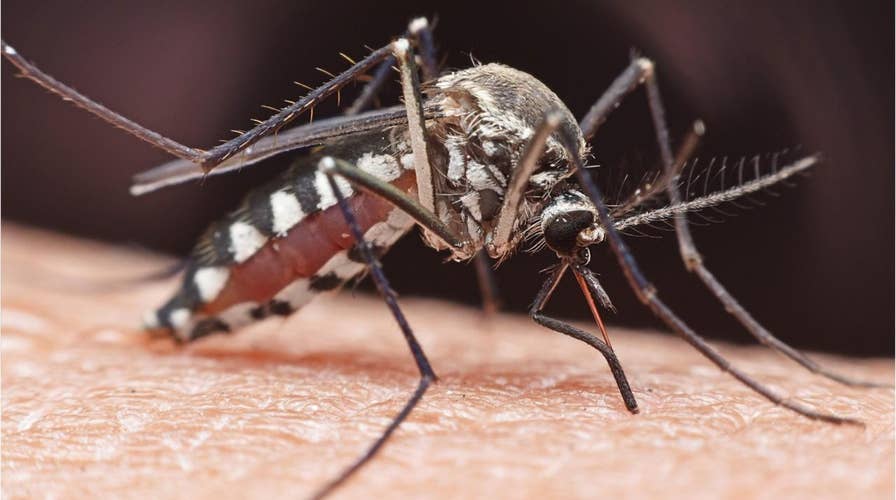How to keep mosquitoes away this summer
Hot and humid weather brings out those pesky mosquitoes. Here are a few simple tips to live a mosquito-free summer.
Florida health officials on Tuesday announced a case of the potentially life-threatening mosquito-borne virus known as dengue fever.
The case was confirmed in the Miami-Dade County community, the Florida Department of Health in Miami-Dade County said in a press release.
“There is a heightened concern of additional residents becoming ill,” the release added.
POTENTIALLY FATAL MOSQUITO-BORNE EEE VIRUS DETECTED IN DELAWARE: STATE OFFICIALS
Dengue, per the Centers for Disease Control and Prevention (CDC), is spread through the bite of infected Aedes mosquitoes — the same species that are known to spread Zika virus and chikungunya. The virus is more common in areas with tropical and subtropical regions, such as the Carribean, Central and South America, and the Pacific Islands, among other places, according to the federal health agency.
“In the United States, local spread of dengue occurs infrequently,” the agency noted.
The virus can become life-threatening “within a few hours,” per the CDC, which noted symptoms can include fever, nausea, vomiting, rash and aches and pains.
There is no specific treatment, but most people recover in roughly a week. That said, “about 1 in 20 people who get sick with dengue will develop severe dengue,” the CDC said.
“Severe dengue is a more serious form of the disease that can result in shock, internal bleeding, and even death. You are more likely to develop severe dengue if you have had dengue infection before,” it continues. “Infants and pregnant women are at increased risk of developing severe dengue.”
Signs of severe dengue include vomiting, bleeding from the nose or gums, stomach pain and restlessness, among other signs.
Roughly 22,000 people die from severe dengue each year, according to the CDC.
WEST NILE VIRUS CONFIRMED IN LOS ANGELES COUNTY FOR THE FIRST TIME IN 2019, HEALTH OFFICIALS SAY
The best way to prevent dengue and other mosquito-borne ailments is by draining standing water — like in birdbaths, buckets or on pool covers — as stagnant water can serve as a breeding ground for these insects. Other preventative measures include covering skin with long-sleeved pants and shirts while outside and using insect repellent containing DEET.
The Miami Herald reports this is the second dengue case in the Miami-Dade area this year; the first was in March.









































